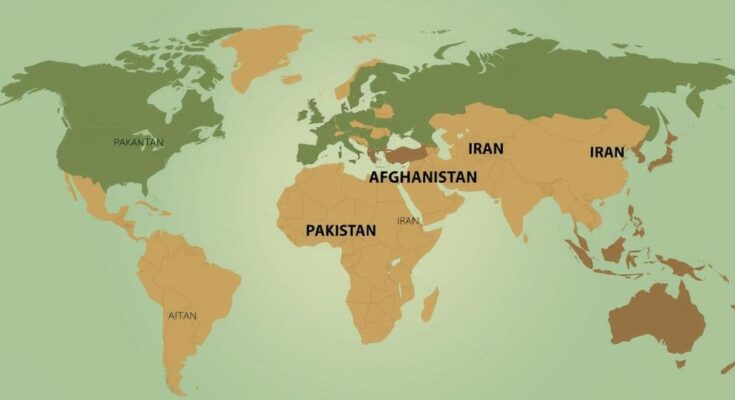The Trump administration is set to announce new U.S. entry restrictions affecting travel and visa access for individuals from several countries, including Afghanistan, Pakistan, and Iran. Following an Executive Order for security assessment, there are concerns about their implications for refugees and visa seekers from these nations. Civil rights groups have opposed the move, arguing that existing vetting processes are already stringent.
The Trump administration is reportedly preparing to impose new entry restrictions for certain countries, possibly affecting travel and visa accessibility for individuals from Afghanistan, Pakistan, Iran, Libya, Somalia, Sudan, Syria, Yemen, Chad, North Korea, and Venezuela. This move follows an Executive Order issued on January 20, prompting federal agencies to evaluate the security screening and vetting processes of these nations, aiming to intensify entry requirements with potential partial or full suspensions of admissions. An official declaration regarding the affected nations is anticipated soon.
During his first term, the Trump administration initiated a succession of travel bans beginning in 2017, which primarily targeted multiple countries. These measures faced significant backlash, being branded as a “Muslim Ban” due to their emphasis on Muslim-majority countries. Despite numerous legal challenges, the U.S. Supreme Court upheld the third iteration of the ban in 2018, asserting it was within the President’s rights to implement national security protocols.
Although the final list of restricted countries has not yet been disclosed, Afghanistan and Pakistan are reportedly under examination for potential inclusion. Advocacy groups, such as the International Refugee Admissions Project (IRAP), have raised alarms about the adverse implications these restrictions could impose, particularly on Afghan refugees—including Special Immigrant Visa (SIV) holders—who are fleeing from Taliban persecution.
Media reports suggest that Pakistan is being closely evaluated due to security issues and alleged deficiencies in its vetting procedures. Should Pakistan be included in the restrictions, thousands of Pakistani nationals seeking U.S. visas could be significantly affected.
The response to the possibility of new travel bans has been immediate and critical. Organizations such as the American Civil Liberties Union (ACLU) have denounced the proposal, arguing that it is unjust and counterproductive. Critics assert that the State Department and the Department of Homeland Security (DHS) already employ some of the most rigorous vetting processes globally, rendering additional restrictions unnecessary.
Under the mandate of the Executive Order, the State Department and DHS have 60 days to finalize a list of countries subject to travel restrictions. With the deadline approaching, an official announcement is anticipated shortly. For ongoing updates, individuals are encouraged to visit the official websites of the U.S. Department of State and the Department of Homeland Security.
In conclusion, the Trump administration’s plan to implement new U.S. entry restrictions could have significant repercussions for nationals from Afghanistan, Pakistan, and other countries under review. As the administration reassesses measures to enhance national security, advocacy groups and civil rights organizations express deep concern over the potential humanitarian impact of these restrictions. The situation remains dynamic with an official announcement expected soon, and stakeholders are urged to stay informed through authoritative sources.
Original Source: www.travelandtourworld.com




